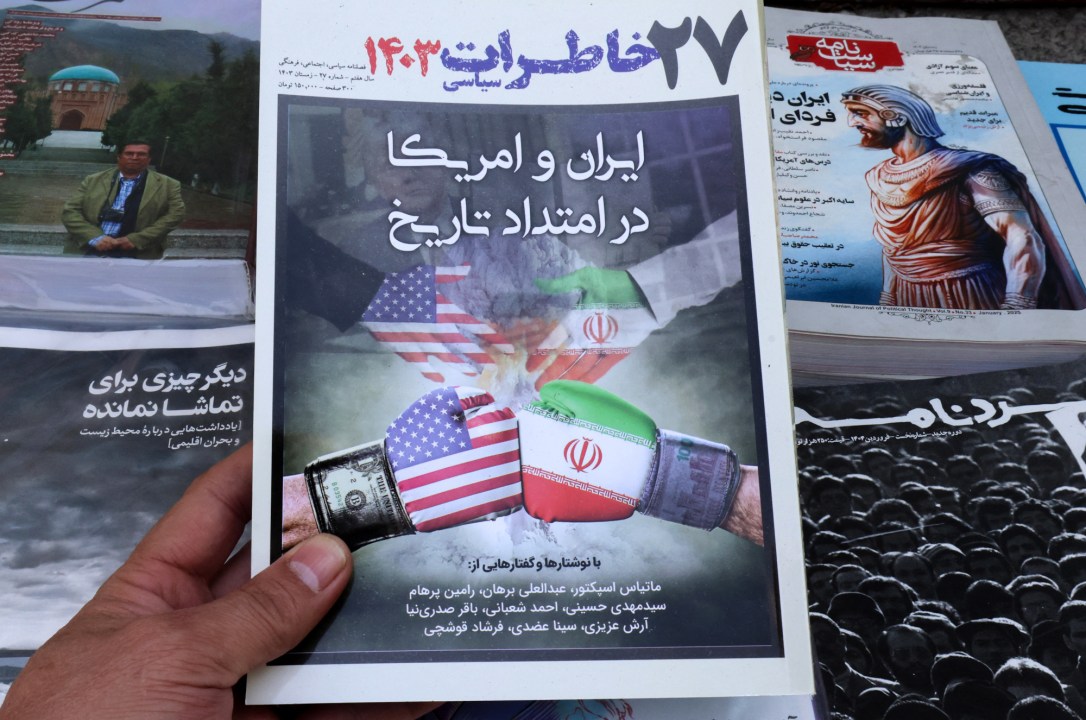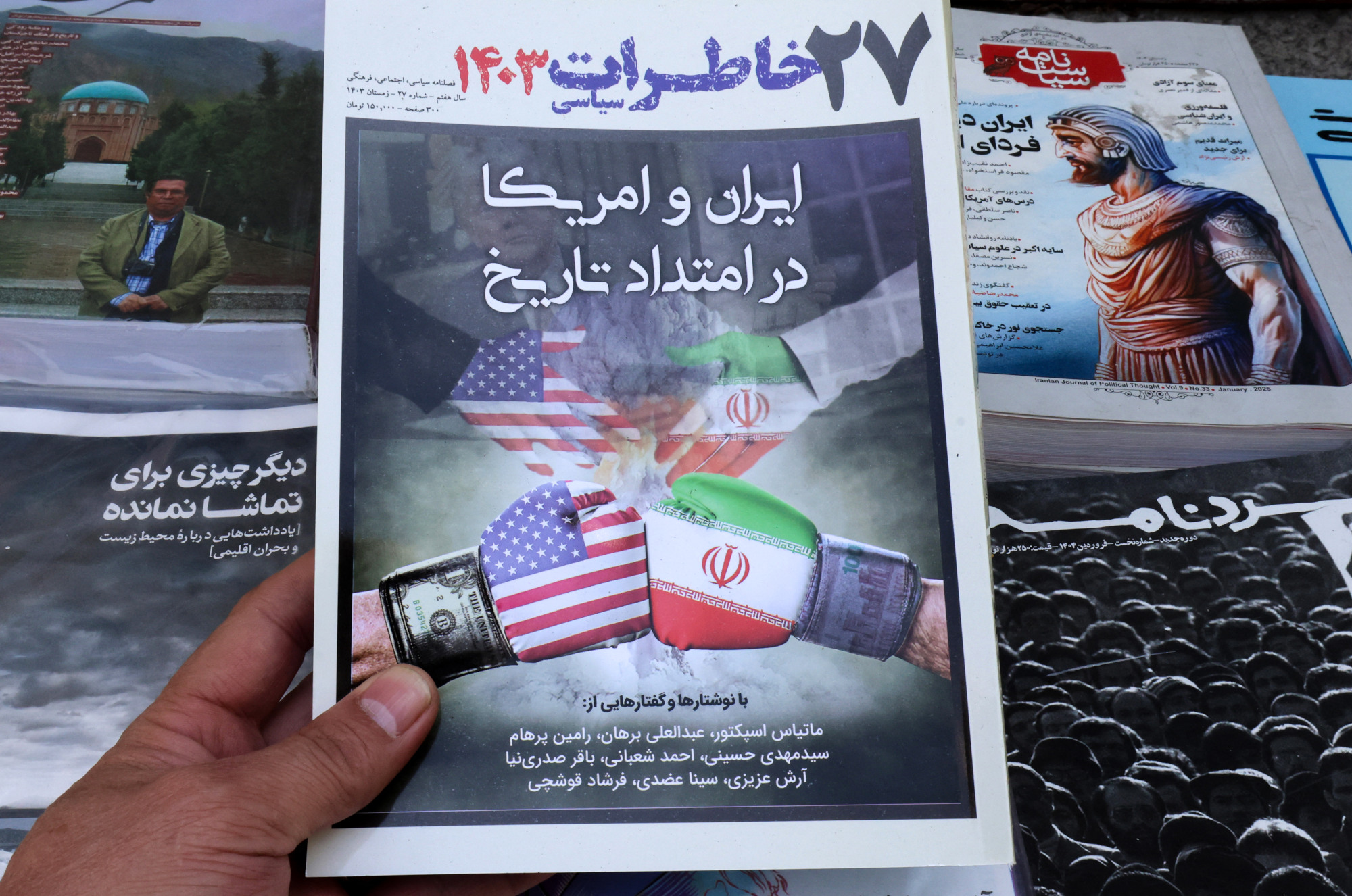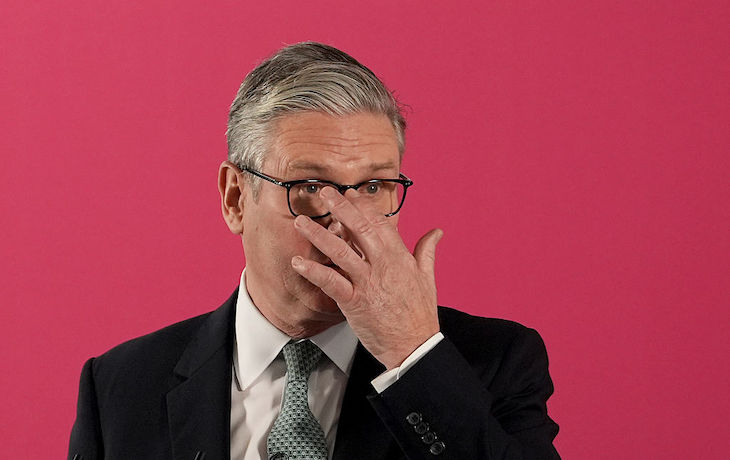US and Iranian diplomats are meeting in Rome this weekend for further talks on Iran’s nuclear programme, in what looks set to be another forlorn bid to rein in the world’s largest state sponsor of terrorism – and a regime which makes North Korea look like a paragon of good faith.
In some ways, the new talks feel like déjà vu. The Gulf state of Oman has resumed its role as the go-between for the US and Iran, with its embassy in Rome providing the venue for the latest phase of talks and its foreign minister Badr Al Busaidi mediating what the Iranians insist will be ‘indirect’ negotiations.
Oman has maintained a Swiss-style foreign policy of ‘positive neutrality’ for decades and its backroom shuttle diplomacy to try to quell conflict between the US and Iran dates back to the Iranian revolution in 1979. In the early 2010s, this led to it hosting secret backchannel talks in Muscat that ultimately led to the 2015 Joint Comprehensive Plan of Action (JCPOA) nuclear deal with Iran, which President Trump withdrew from in 2018. Oman has managed to maintain the trust of both sides and is one of the more experienced actors in the room.
This cannot be said for the US delegation who have dispatched Steve Witkoff as lead negotiator. The New York real estate developer and long-time friend of Donald Trump has been dubbed the ‘Envoy for Everything’ thanks to a massive portfolio that already includes Gaza and Ukraine.
A Sisyphean task for even an experienced diplomat, Witkoff has little to no knowledge of the countries and subjects he’s wading into. As Donald Trump’s former National Security Advisor John Bolton put it, ‘He knows nothing about Iran, he knows nothing about nuclear weapons, he knows nothing about international arms control agreements, he knows nothing about verification and compliance of those agreements. Really, what could go wrong?’
Witkoff’s track record so far has been poor, with the Gaza truce that he helped to broker quickly unravelling and the Russians effectively rejecting a ceasefire in Ukraine. Worse still, his lack of experience dealing with hardened political operators like Putin and ignorance of the facts on the ground has left him vulnerable to manipulation, such as repeating Russian talking points on Ukraine and fawning over the Russian president.
It will not be any easier dealing with Iran. The regime also employs Russian-style disinformation tactics and their team for the talks is led by Iranian foreign minister Abbas Araghchi, a shrewd negotiator who has already seized on Witkoff’s ‘contradictory and conflicting’ position on their nuclear programme. Earlier this week, Witkoff suggested a deal with Iran could see it go back to 3.67 per cent uranium enrichment – effectively the same as the 2015 JCPOA signed by the Obama administration – only to then backtrack, insisting that ‘Iran must stop and eliminate its nuclear enrichment and weaponisation programme’.
Confused messaging and inexperience aside, even if the great Henry Kissinger was resurrected to lead negotiations the US would not succeed, for the simple reason that Iran has not joined these discussions in good faith. It has no intention of reducing or getting rid of its nuclear programme and the talks are simply a stalling tactic to buy time for the regime to rebuild its air defence systems that were either damaged or destroyed in Israel’s airstrikes in October 2024.
Iran has not joined these discussions in good faith
This hasn’t escaped President Trump’s notice, who has accused Iran of slow-walking the talks and threatened military strikes if an agreement isn’t reached soon. With the regime dragging its feet and so far demonstrating no goodwill whatsoever, it seems pointless to bother with talks in the first place.
Iran’s fundamental strategy of using terror combined with military power to achieve dominance hasn’t changed since it was designated a state sponsor of terrorism by President Reagan back in 1984. After it signed the JCPOA in 2015, Iran continued to spend billions funding its network of proxies across the Middle East including Hamas, Hezbollah, the Houthis, and Iraqi militias, using them to wage war on the West and its allies.
During the same period, it launched numerous assassination and abduction plots against its own dissidents living abroad and US officials who have sought to confront it, including the current US president. These are not the actions of a regime which is looking to come in from the cold. Whenever it is challenged about its plots, Iran flatly denies all involvement despite overwhelming evidence. Since its word cannot be trusted on what are essentially acts of war, why would it behave honestly when it comes to its nuclear programme?
The US-Iran talks are doomed to fail because they fall into the trap of compartmentalising Iran’s nuclear development as separate to all its other activities. It is all part of the same malign strategy, pursued by a regime which has shown time and again that it doesn’t want peace. The sooner the West realises this, the sooner we can take action to eliminate Iran’s nuclear capability and the regime along with it. The time for diplomacy is over.








Comments